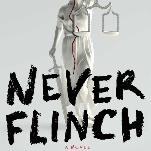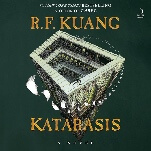Documentary filmmaker Billy Corben kicked off his career with 2001’s Raw Deal: A Question Of Consent, a provocative (and risible) Sundance conversation-starter that used real footage to determine the verity of a rape charge at a University Of Florida fraternity. From there, Corben firmly established himself as a chronicler—and even champion—of outlaws, from the drug smugglers of Cocaine Cowboys, Cocaine Cowboys II, and Square Grouper: The Godfathers Of Ganja to the notorious Miami Hurricanes football teams of the ’80s in the 30 For 30 doc “The U.” His latest effort, Limelight, extends some more sympathy to the devil, which here takes the form of ’80s New York nightclub impresario Peter Gatien—who, with the patch over his left eye, even looks the part. As usual, Corben’s style is caffeinated and a little rough around the edges, but he’s a tenacious journalist, and his yen for sensationalism gives Limelight an irresistible tabloid pop.
Born in Ontario—and sent right back there when his legal hassles eventually led to deportation—Gatien owned and operated four major NYC hotspots: Tunnel, a converted subway terminal that became a hip-hop Petri dish; Club USA, an omnisexual space known for S&M and a large Plexiglas slide; The Palladium, a former rock arena transformed into a new-wave and house-music showcase; and the Limelight, his signature club, which divided an old church into a hodgepodge of rooms, bringing goth kids and bridge-and-tunnel partiers under the same roof. Gatien’s clubs were known as hotbeds of culture and rampant drug use, and when Rudy Giuliani came to power on a vow to crack down on crime, these thriving, $150-million-a-week businesses—and Gatien himself—became primary targets.
Putting the somewhat enigmatic Gatien front and center, Corben pays lip service to the crime that plagued the city before Giuliani took over, but he makes his allegiances clear. Limelight asserts that the mayor’s “quality of life” initiatives were heavy-handed and harmful to the culture, and that the charges against Gatien were mostly unfair. Corben supports his case well, drawing on interviews with informants and law-and-order types, and he makes a convincing argument for the vitality of a nightclub scene that was scrubbed out of existence. It’s like the end of Casino: Sin City converted into Disney World.







































